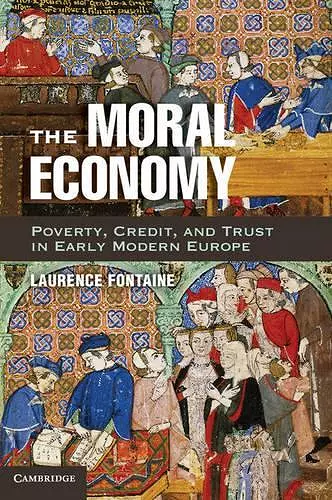The Moral Economy
Poverty, Credit, and Trust in Early Modern Europe
Format:Paperback
Publisher:Cambridge University Press
Published:7th Apr '14
Currently unavailable, and unfortunately no date known when it will be back
This paperback is available in another edition too:
- Hardback£75.00(9781107018815)

The Moral Economy analyzes the nexus of poverty, credit, and trust in early modern Europe.
The Moral Economy examines the nexus of poverty, credit, and trust in early modern Europe, focusing on lending practices and the values that structured them. Laurence Fontaine creates a dialogue between past and present, contrasting their definitions of poverty, the role of the market, and the mechanisms of microcredit.The Moral Economy examines the nexus of poverty, credit, and trust in early modern Europe. It starts with an examination of poverty, the need for credit, and the lending practices of different social groups. It then reconstructs the battles between the Churches and the State around the ban on usury, and analyzes the institutions created to eradicate usury and the informal petty financial economy that developed as a result. Laurence Fontaine unpacks the values that structured these lending practices, namely, the two competing cultures of credit that coexisted, fought, and sometimes merged: the vibrant aristocratic culture and the capitalistic merchant culture. More broadly, Fontaine shows how economic trust between individuals was constructed in the early modern world. By creating a dialogue between past and present, and contrasting their definitions of poverty, the role of the market, and the mechanisms of microcredit, Fontaine draws attention to the necessity of recognizing the different values that coexist in diverse political economies.
'The Moral Economy, a fascinating book by a seasoned social historian, is motivated by the question of whether the premodern moral economy holds any lessons for how future generations should approach social problems. Lamenting the extent to which contemporary politics has become dominated by modern economics, Laurence Fontaine begins her book by posing the question, 'Is there an alternative to this new form of savagery that economic liberalism has become?' …' Carl Wennerlind, The Journal of Modern History
ISBN: 9781107603707
Dimensions: 227mm x 152mm x 18mm
Weight: 440g
325 pages